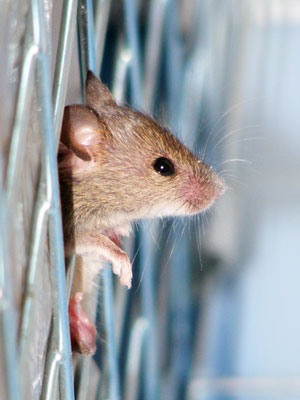All Nonfiction
- Bullying
- Books
- Academic
- Author Interviews
- Celebrity interviews
- College Articles
- College Essays
- Educator of the Year
- Heroes
- Interviews
- Memoir
- Personal Experience
- Sports
- Travel & Culture
All Opinions
- Bullying
- Current Events / Politics
- Discrimination
- Drugs / Alcohol / Smoking
- Entertainment / Celebrities
- Environment
- Love / Relationships
- Movies / Music / TV
- Pop Culture / Trends
- School / College
- Social Issues / Civics
- Spirituality / Religion
- Sports / Hobbies
All Hot Topics
- Bullying
- Community Service
- Environment
- Health
- Letters to the Editor
- Pride & Prejudice
- What Matters
- Back
Summer Guide
- Program Links
- Program Reviews
- Back
College Guide
- College Links
- College Reviews
- College Essays
- College Articles
- Back
Let's Put an and to Animal Testing!
What are the benefits of animal testing? Millions of products safe for humans are created. Lives are saved. However, the negatives of animal testing far outweigh the positives. Not only are there alternatives, but it is expensive, occasionally deadly, and unethical.
Contrary to general opinion, there are successful alternatives to animal testing. Some methods include in vitro techniques, synthetic membranes, and computer models. Experiments on individual cells are carried out through in vitro (meaning literally, “within the glass”) techniques. Synthetic membranes can be used to demonstrate the effects of chemicals on human skin. There is no need to smear innocent animals with potentially harmful substances when we can (far more effectively) test those substances on replicas of human skin. Computer models effectively simulate an experiment's or specific question's response. Although they don't replace an entire organism, they prove useful as substitutes to animal testing.
Think about all of the taxes that we as citizens have to pay. Now think about all the charitable donations we've made. Unknowingly we all contribute to animal testing. These things all help to fund the exploitation of animals. Government granting agencies such as the U.S. National Institutes of Health (NIH) are the largest providers of funds. According to PETA (People for the Ethical Treatment of Animals), “approximately 40 percent of NIH-funded research involves experimentation on nonhuman animals.”
This spending is essentially wasted, because many of the experiments performed on animals are useless. According to Dr. Richard Klausner, former National Cancer Institute Director, “We have cured mice of cancer for decades, and it simply didn't work in humans.” And, according to PETA, “although at least 85 HV/AIDS vaccines have been successful in nonhuman primate studies, as of 2010, every one of nearly 200 preventative and therapeutic vaccine trials has failed to demonstrate benefit to humans.”
This failure of animal testing to provide relevant information for humans is mainly due to the fact that, simply, animal bodies are different from human bodies. In some cases, it's like comparing apples and oranges. It is deceitful and dangerous to apply data retrieved from one species to another entirely different species.
One of the most well-known examples of this is the Thalidomide Tragedy of the 1960s and '70s. It claimed to be safely tested on animals. It was then sold to thousands of mothers as a sedative for breastfeeding. As a result, tens of thousands of children were born with severe deformities.
In addition to the expenses and hazards of experimentation on animals, it is extremely unethical. Animals are submitted to poor living conditions and many are experimented on without any sort of painkiller. “In the United States, there are 1.13 million animals used in experiments (excluding rats, mice, birds, reptiles, amphibians, and agricultural animals used in agricultural experiments), plus an estimated 100 million mice and rats. [Of these], 76,001 are subjected to pain without pain relief” (Peta.com).
The only federal law overseeing animal testing is the Animal Welfare Act. Over 90 percent of the animals used in testing are excluded from this act. Reptiles, amphibians, fish, birds, rats, and mice are eliminated from any sort of protection.
This kind of discrimination is causing countless creatures to suffer. Suffering at the whims of fixated humans unable to see the other options. Animal testing is expensive, potentially lethal, and cruel. Man's need for dominion has cost the lives of millions of animals who do nothing to harm us. Do something. Protest. Refuse to buy products tested on animals. Together, we can put an end to this crime. Contact PETA for more information.

Similar Articles
JOIN THE DISCUSSION
This article has 0 comments.
